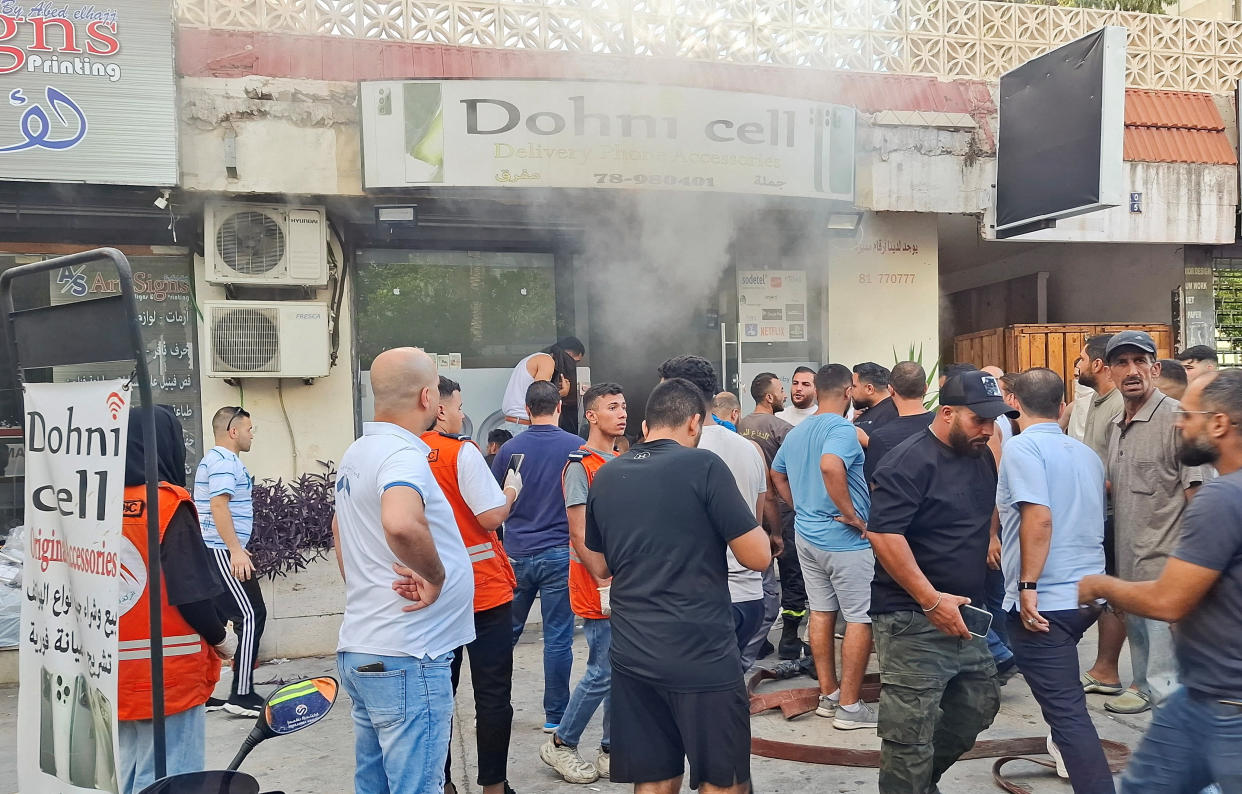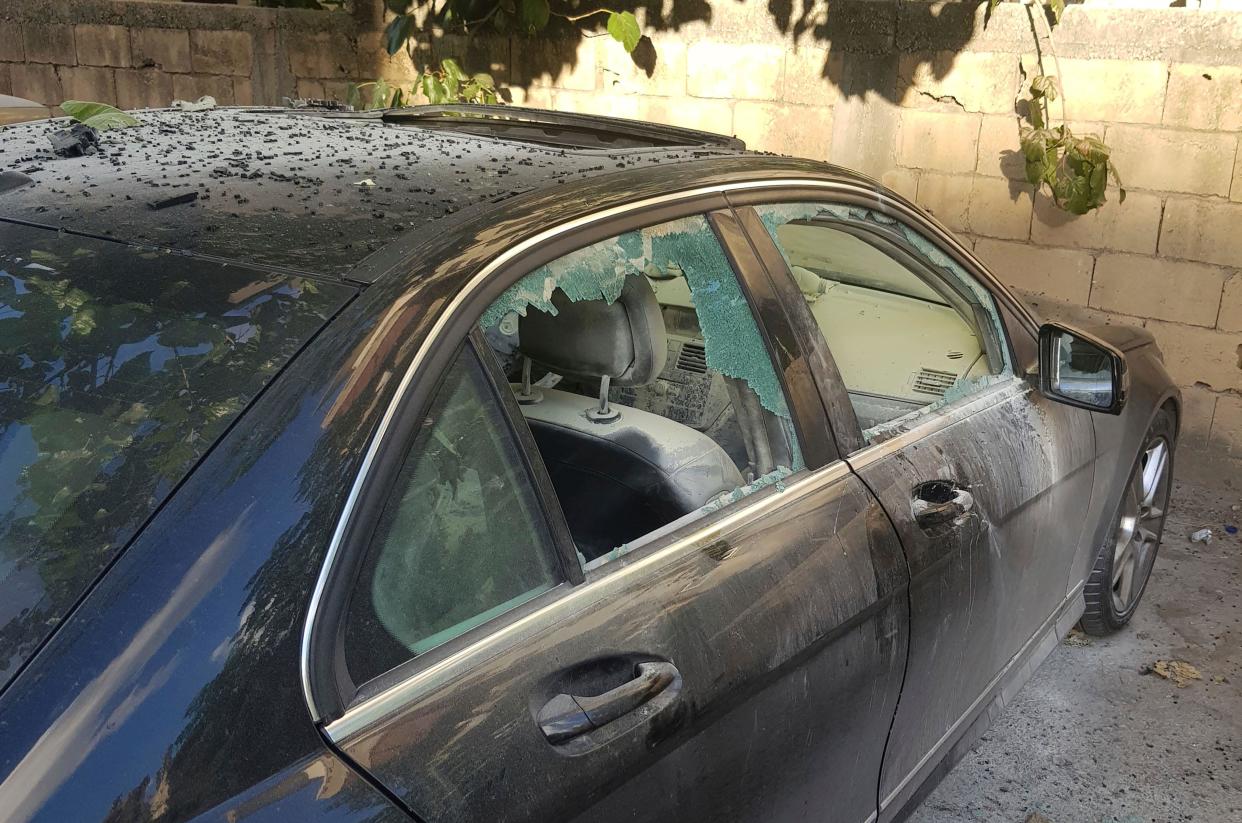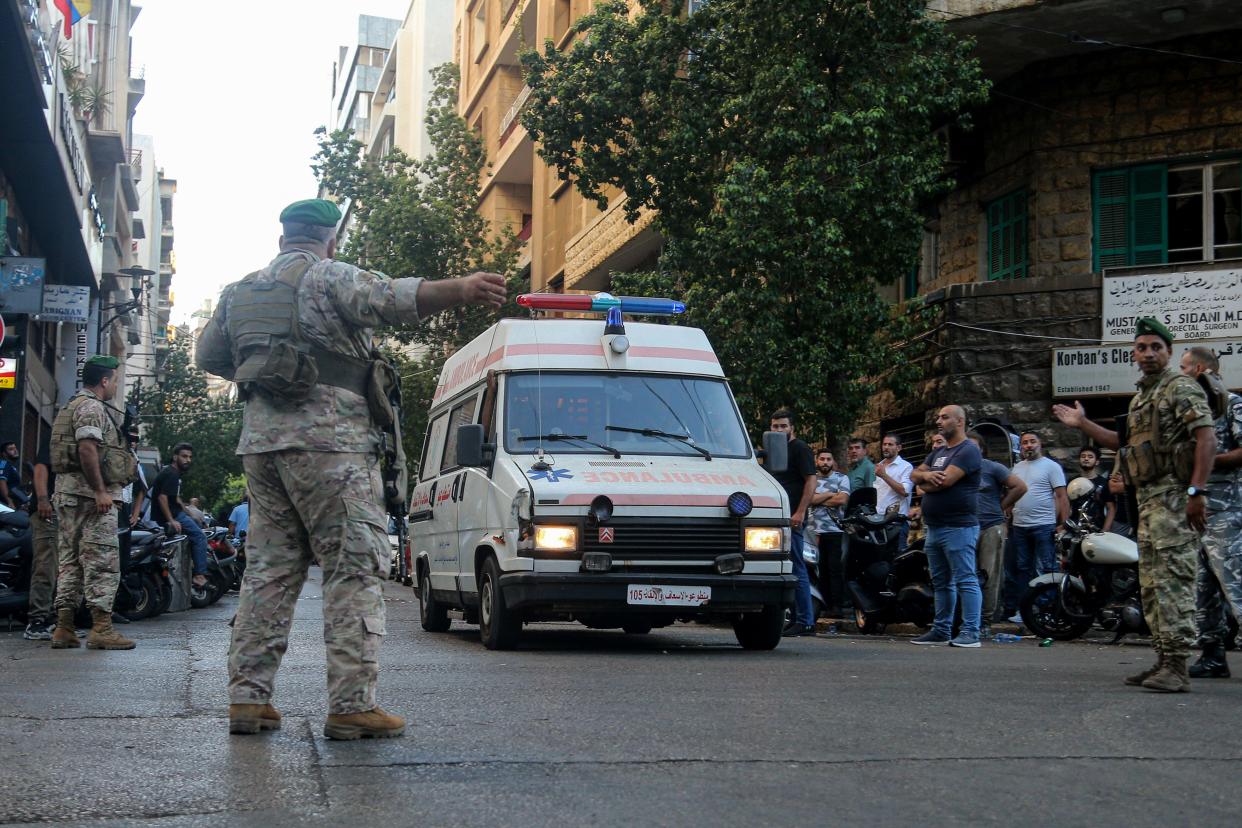The key facts as second wave of explosions hit Lebanon in 'walkie-talkie' attack

A further round of explosions in the Lebanese capital Beirut, apparently targeting militant group Hezbollah, has killed at least nine people with hundreds more left wounded, as Israeli leaders spoke of a "new phase in the war".
It follows previous blasts linked to pager devices on Tuesday that had already killed 12 and injured thousands.
According to the Associated Press, there were multiple detonations during the second attack (including at least one at the site of a funeral for victims of the first incident) which sources have said originated from walkie-talkies used by the organisation's fighters.
The Iranian ambassador and thousands of others were among the wounded on Tuesday in what appeared to be the first phase of a sophisticated, remote attack that saw hundreds of pagers explode simultaneously across Lebanon and parts of Syria on Tuesday
The Associated Press news agency cited an anonymous Hezbollah official, which blamed Israel for targeting the device. However, Israel has not admitted any part in the attack and the Israeli military have declined to comment.
Tensions have been rising between Lebanon and Israel, with clashes almost daily between Hezbollah and Israeli forces since the war between Israel and Hezbollah ally Hamas began in Gaza.
Read the latest key updates below from our partners or click to skip ahead
> Israel declares 'new phase' of war after second wave of attacks
> Mossad 'planted explosives months before they detonated'
> Pager attack could signal a new, violent era of tech warfare
> Who made the exploding pagers?
> What is Hezbollah and how powerful is its military?
Israel declares 'new phase' of war

Walkie-talkies and solar equipment exploded in Beirut and multiple parts of Lebanon on Wednesday in an apparent second wave of attacks targeting electronic devices a day after hundreds of pagers used by Hezbollah blew up, state media and Hezbollah officials said. At least nine people were killed and more than 300 people wounded in the second wave, the Health Ministry said.
The attacks, which were widely believed to be carried out by Israel targeting Hezbollah, have hiked fears that the two sides' simmering conflict could escalate into all-out war.
Speaking to Israeli troops on Wednesday, Israeli Defense Minister Yoav Gallant said, “We are at the start of a new phase in the war — it requires courage, determination and perseverance.”
Mossad 'planted explosives months before they detonated'

Israel’s Mossad spy agency planted explosives inside thousands of pagers imported by Lebanese group Hezbollah months before they detonated, a senior Lebanese security source and another source told Reuters.
The operation was an unprecedented Hezbollah security breach that saw thousands of pagers detonate across Lebanon, with victims including the group’s fighters and Iran’s envoy to Beirut.
The Lebanese security source said the pagers were from Taiwan-based Gold Apollo, but the company said in a statement it did not manufacture the devices. It said they were made by a company called BAC which has a licence to use its brand, but gave no more details.
Pager attack could signal a new, violent era of tech warfare

It’s believed that the pagers attacked were produced by Taiwanese manufacturer Gold Apollo, based on images of destroyed devices in the immediate aftermath of the attack.
The batch of pagers used by Hezbollah representatives is believed to have contained a small explosive charge within the device that was triggered by a simple message sent to the pagers, according to a former British Army munitions expert who spoke to the BBC.
Military experts suggest the method of attack limits the number of people who might inadvertently be affected by being incorrectly targeted – because the pager is such an old, outmoded technology.
A messy global trail emerges behind deadly Lebanon blasts
An electronics manufacturer in Taiwan said on Wednesday that a company based in Hungary made the pagers bearing its brand that were used by members of the militant group Hezbollah... In a statement, Gold Apollo identified the other company as the Hungary-based BAC Consulting.
Reached by phone Wednesday, BAC Consulting Chief Executive Cristiana Bársony-Arcidiacono confirmed that her company worked with Gold Apollo. But when asked about the pagers and the explosions, she said, “I don’t make the pagers. I am just the intermediate. I think you got it wrong.”
What is Hezbollah and how powerful is its military?
Hezbollah was founded in 1982 in the middle of Lebanon's civil war, which raged for 15 years from 1975 to 1990.
It was born out of Iran's efforts to export its 1979 Islamic Revolution around the region - and combat Israeli forces after Israel invaded Lebanon and occupied parts of the capital Beirut in 1982.
Hezbollah - whose name means "The Party of God" was accused of frequently carrying out attacks on foreign targets including the bombing of a US Marine barracks in 1983 which killed 241 people.


